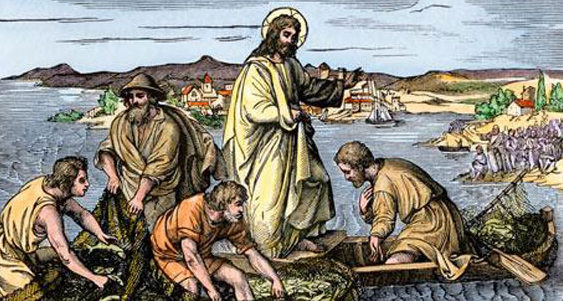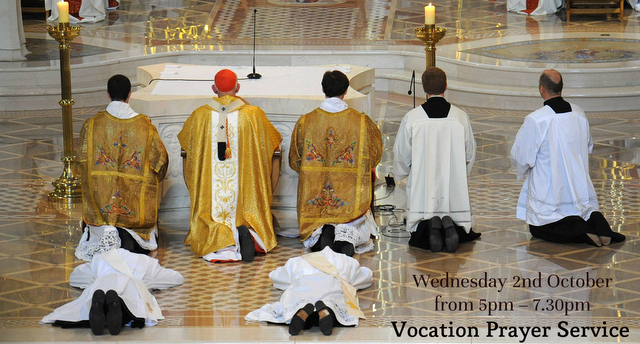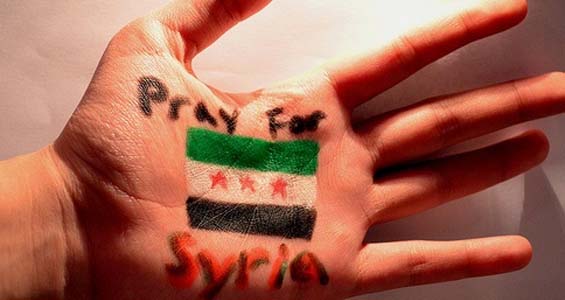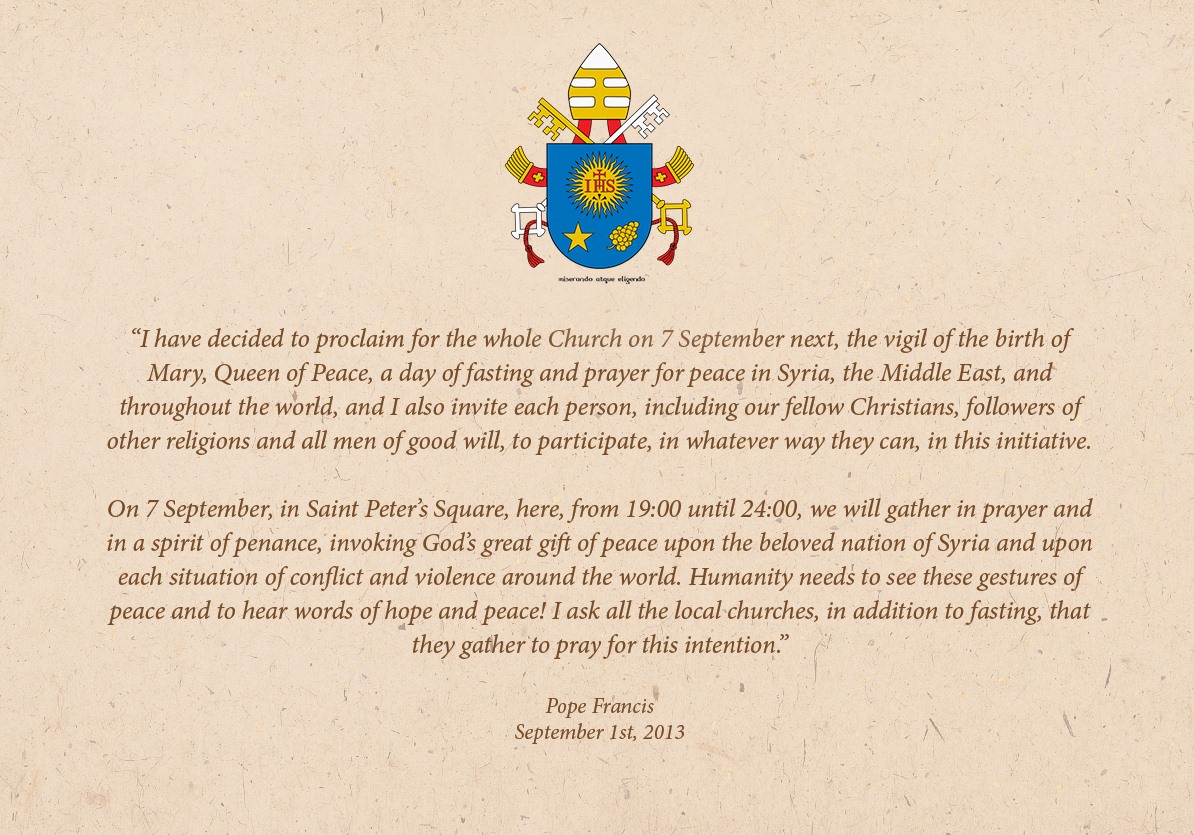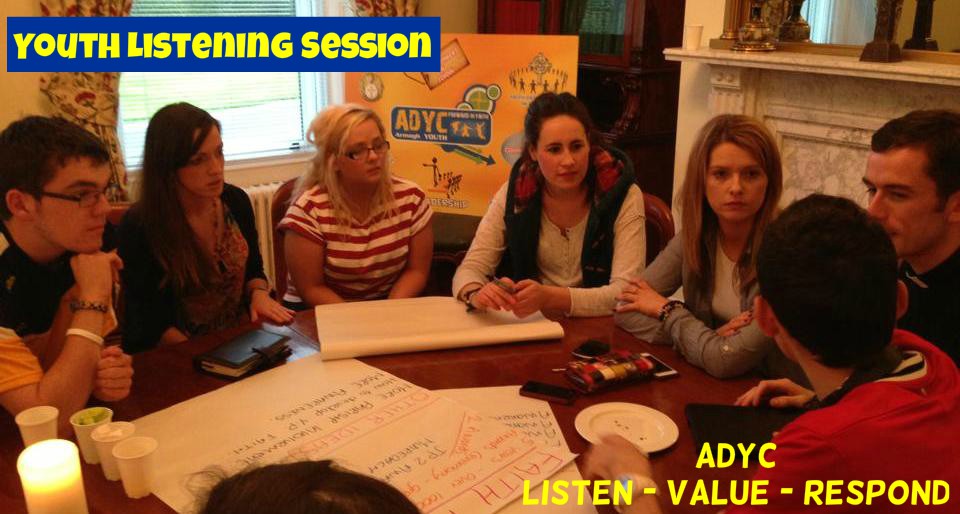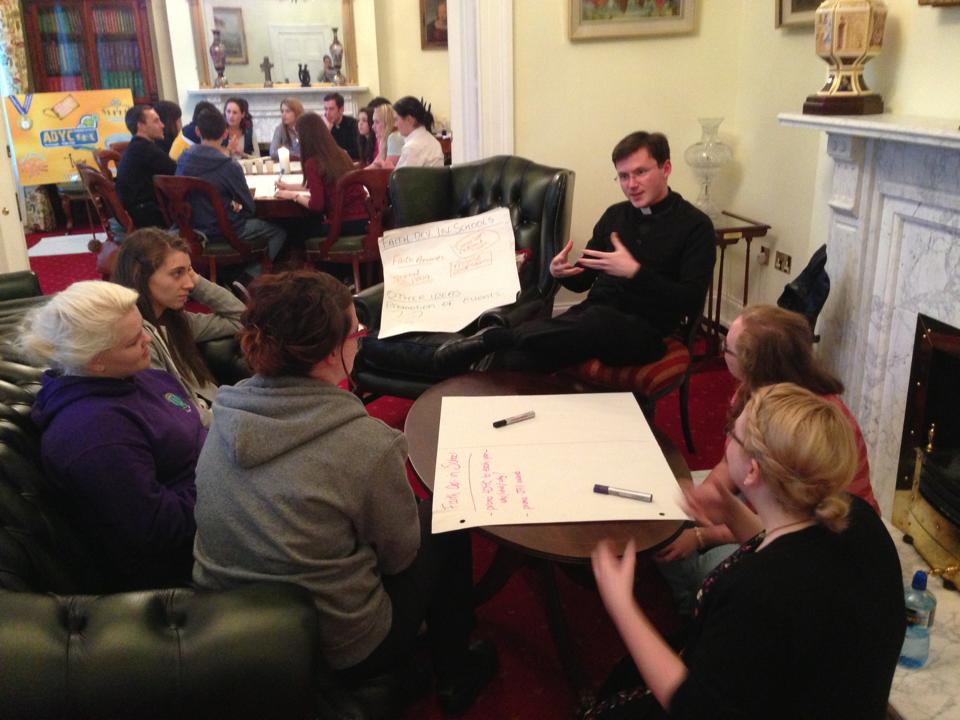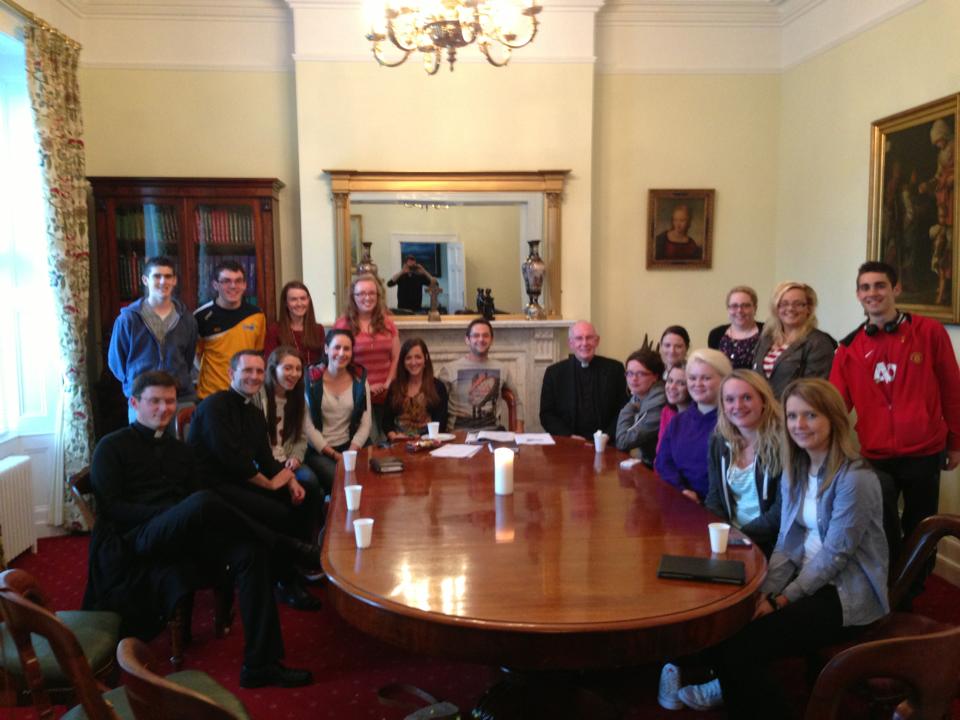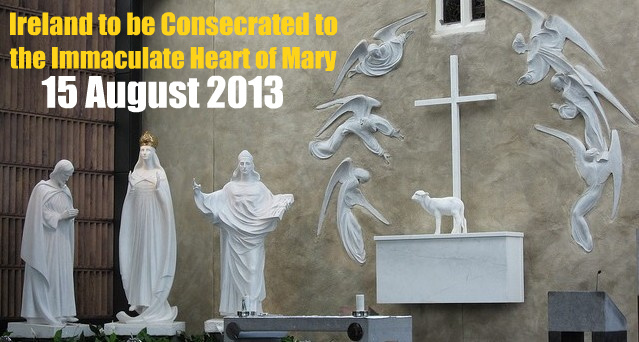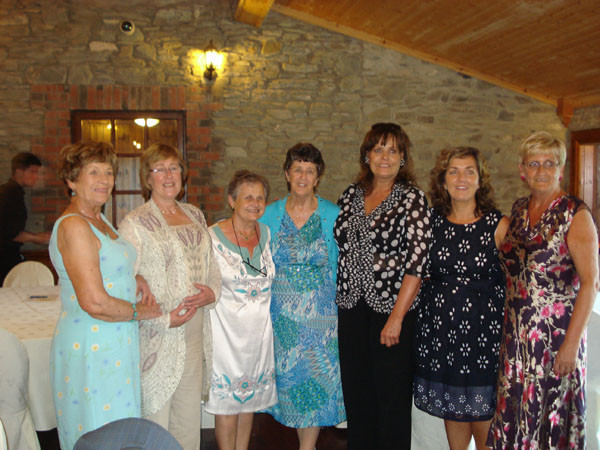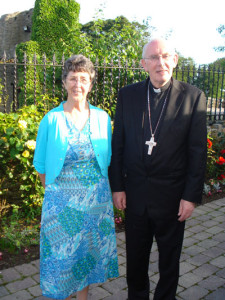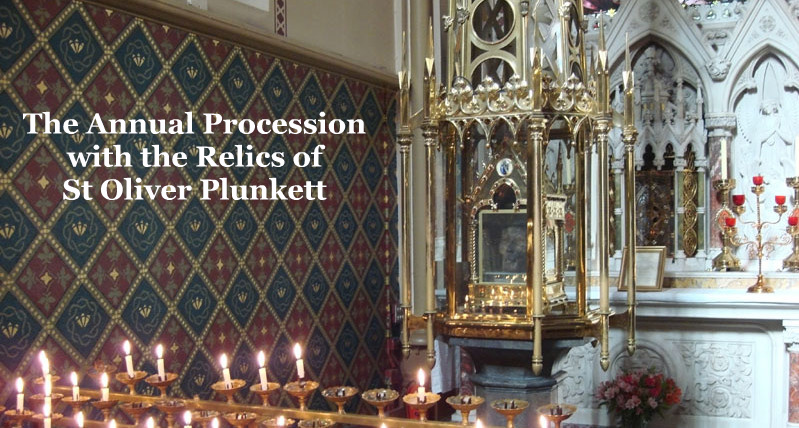You may wish to download this prayer of consecration to use personally or with your family, parish or school.
Ireland will be consecrated to the Immaculate Heart of Mary on August 15, the Solemnity of the Assumption of the Blessed Virgin Mary. The consecration will take place at Knock Shrine, during the annual Novena to Our Lady of Knock.
Cardinal Seán Brady, Archbishop of Armagh and Primate of All Ireland will lead the Act of Consecration. Archbishop Eamon Martin, Coadjutor Archbishop of Armagh will be the principal celebrant and preacher at the Mass on that day. Bishops, priests and people from across the country will be in attendance.
The Prayer of Consecration will entrust families, homes and the dioceses of Ireland to Jesus through the Immaculate Heart of Mary and call on her to watch over the young people of Ireland. As the universal Church is currently celebrating a Year of Faith, it is fitting that the Act of Consecration calls to mind the woman of faith par excellence and asks for her prayers for the people of this country.
Commenting ahead of the Consecration Cardinal Brady said: “In his recent encyclical for the Year of Faith, Pope Francis invited us to turn to Mary, Mother of the Church and Mother of our Faith. I am very pleased that the Irish Bishops decided at their June Conference to consecrate Ireland to the Immaculate Heart of Mary. I am looking forward to being at our National Shrine in Knock on the 15th August to ask Mary’s maternal blessing on the people of Ireland. The Feast of the Assumption is one of the biggest days of the year in Knock, with bishops, priests and people present for the opening of the Novena. I invite the people of Ireland to come along to Knock on the day or to join in this beautiful devotional act by praying the prayer of entrustment in their homes and parish churches.”
Background information:
- Consecration to Our Lady is well-attested to in the tradition of the Church.
- Consecration is understood as referring to “entrusting” the person consecrated to Our Lady. Consecration “is a conscious recognition of the singular role of Mary in the Mystery of Christ and of the Church, of the universal and exemplary importance of her witness to the Gospel, of trust in her intercession, and of the efficacy of her patronage, of the many maternal functions she has, since she is a true mother in the order of grace to each and every one of her children.”
- The act of consecration is made “to the Father, through Christ in the Holy Spirit, imploring the intercession of the Blessed Virgin Mary, to whom we entrust ourselves completely, so as to keep our baptismal commitments and live as her children.”
- The National Centre for Liturgy has assisted in drawing up the text to be used in the consecration.
Act of Consecration
Most Blessed Virgin Mary, Mother of God and Refuge of Sinners, we entrust and consecrate ourselves, our family, our home and our Dioceses to Jesus through your Immaculate Heart. As your children, we promise to follow your example in our lives by doing at all times the will of God.
O Mary, Spouse of the Holy Spirit, we renew today the promises of our Baptism and Confirmation. Intercede for us with the Holy Spirit that we may be always faithful to your Divine Son, to his Mystical Body, the Catholic Church, and to the teachings of his Vicar on earth, our Holy Father the Pope.
Immaculate Heart of Mary, our Queen and our Mother, we promise to uphold the sanctity of marriage and the welfare of the family. Watch over our minds and hearts and preserve our youth from dangers to the faith and the many temptations that threaten them in the world today.
We ask you, Mary our Advocate to intercede with your divine Son. Obtain for our country the grace to uphold the uniqueness of every human life, from the first moment of conception to natural death.
O Blessed Mother, Our Life, our Sweetness and Our Hope, we wish that this Consecration be for the great glory of God and that it lead us safely to Jesus your Son.
A Naomh-Mhuire, a Mháthair Dé, guigh orainn na peacaigh, anois agus ar uair ár mbáis.
Amen.
This prayer has been approved for use by the National Centre for Liturgy and by Cardinal Seán Brady.
Prayer to Mary, Mother of the Church and Mother of our faith (from the encyclical Lumen Fidei of Pope Francis)
Mother, help our faith!
Open our ears to hear God’s word and to recognise his voice and call.
Awaken in us a desire to follow in his footsteps, to go forth from our own land and to receive his promise.
Help us to be touched by his love, that we may touch him in faith.
Help us to entrust ourselves fully to him and to believe in his love, especially at times of trial, beneath the shadow of the cross, when our faith is called to mature.
Sow in our faith the joy of the Risen One.
Remind us that those who believe are never alone.
Teach us to see all things with the eyes of Jesus, that he may be light for our path. And may this light of faith always increase in us, until the dawn of that undying day which is Christ himself, your Son, our Lord!
Amen
This prayer is taken from Lumen Fidei, the recent Encyclical of Pope Francis.



